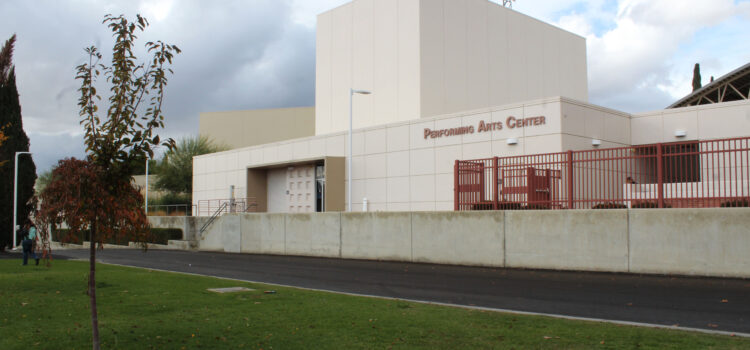
The Bakersfield College Academic Senate Board Meeting adopted Thursday The Racial Equity Commitment, a renewed commitment to equitable access and completion document outlined by Equal Opportunity and Diversity Advisory Committee.
This document outlines four commitments: Racial equity for student success agenda; collective consciousness raising; faculty and staff diversification; and race-conscious curriculum for police and first responder training. Bakersfield college academic senate approved the Commitment with a vote of 20-2 with 8 abstaining.
“The racial equity student success agenda is vital because student support should be aimed at the unique needs of each group so that we are all successful,” said BC’s Umoja Club. “We want to see more faculty and staff of color because we want more role models on campus to show us what’s possible. We also value professors of any race or culture who celebrate and dignify our history and experiences. We support the College’s commitment to racial equity.”
The first step BC will take to implement this Commitment is to have California Community College Equity Leadership Alliance partner with the USC Race and Equity Center to train college representatives on topics like hiring and retaining faculty of color, fostering inclusive classrooms and integrating race across the curriculum.
Furthermore, the members will also have access to online tools like case studies and readings on racial equity and will participate in campus surveys to assess how students, faculty and staff feel about their campus climate when it comes to inclusion and diversity.
By adopting the Racial Equity Commitment, many say Bakersfield College is sending a clear message to African-American/Black and Latinx students that it is committed to doing better to serve them.
“A message that says we hear you, and we commit to continue to listen,” said EODAC. “But more importantly, as an institution we are committed to doing more than talking; we are committed to taking action.”
The Alliance will use the following approach for member institutions:
- Professional learning: Beginning in June 2020, the Center will annually host a dozen eConvenings, each on a particular aspect of racial equity. These high-quality professional learning experiences for high-level administrators and faculty leaders will be held virtually throughout the year, one per month. Each eConvening will explore strategies and practical approaches for equity issues.
- Virtual racial equity resource portal: The Center is developing an online repository of resources and tools for Alliance member colleges. Downloadable equity-related rubrics, readings, case studies, videos, slide decks, and conversation scripts will be included in the portal and accessible to all employees at member colleges.
- Campus climate surveys: Using the National Assessment of Collegiate Campus Climates (NACCC) as a model, the students, faculty and staff of each member institution will be surveyed about their feelings of belonging and inclusion, encounters with racism on campus, the frequency and depth of cross-cultural interactions, appraisals of institutional commitment to diversity and inclusion, and other related topics
“Having diverse faculty and staff at BC is incredibly important, as it could possibly be the first time a student gets the support and understanding that they need to accomplish their goals,”said Inda Aguilera Solis, a student at Bakersfield College and a member or Latinos Unidos Por Educacion Student Organization. “Groups like L.U.P.E. and a Dreamers Resource Center are important for communities with large immigrant densities and should be placed all over California. Expanding these kinds of groups or at the very least the diversity within colleges could overall increase the number of incoming immigrant/latino students.”
Abel Guzman, the Co-Chair of the Equal Opportunity and Diversity Advisory Committee (EODAC) at Bakersfield College, said this vote is incredibly important because the Commitment is now an institution-wide commitment.
“We are excited to send a clear message to our African American/Black and Latinx students that we are committed to doing better to serve them,” said Guzman. “In committing to doing better by these two groups of students, we will do better for all students.”
Martha A. Rivas, Ph.D. a faculty member at CSU Dominguez Hills and research associate at UCLA, says equity plans must include data that acknowledges the historical wrongdoings by the college.
“Meaning, colleges must accept the way they were placing students thru placement exams have been unjust,” she said. “Acknowledge the historical and psychological oppression of students when the majority of faculty and administrators believe students will stay at the community college for more than 3-4 years. That is institutional neglect.”
She said it’s important for institutions to offer innovative programming that will prepare students not only to transfer but to understand the entire educational pipeline and to provide this information as early as possible. .
Rivas said, “We need the entire sector to do this for the sake of equitable outcomes for Students of Color, and for the sake of our state’s success.”